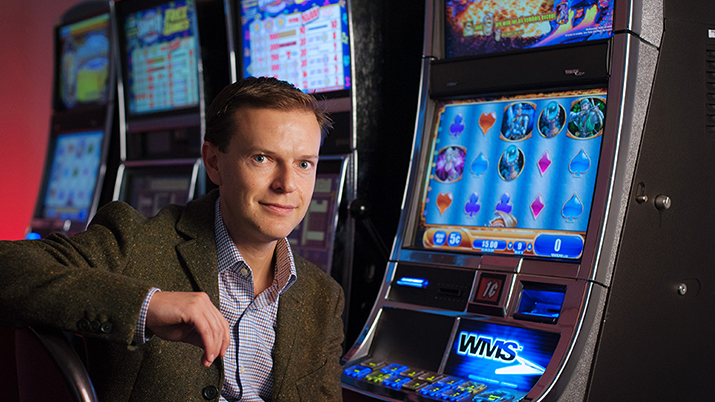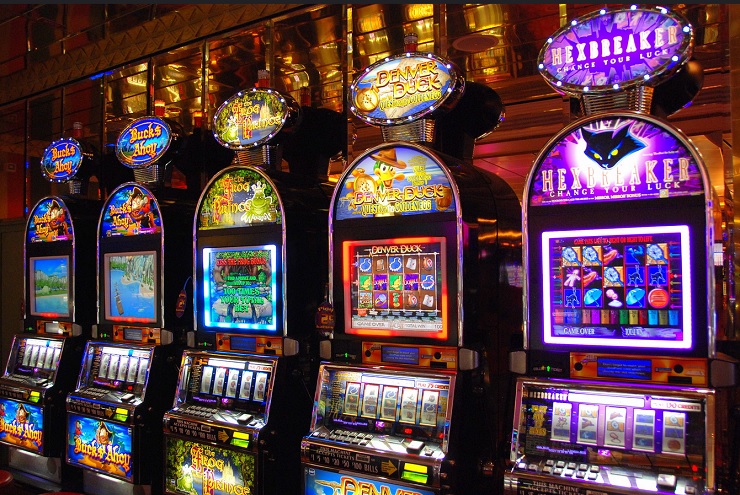In the dazzling world of casinos, few attractions draw players in quite like slot machines. These mesmerizing devices, with their bright lights and enticing sounds, churn out a blend of excitement and anticipation with every pull of the lever—or, more commonly today, the push of a button.
But have you ever wondered what really fuels the magic behind these popular games? It’s not merely luck or chance; there’s an intricate math at play that dictates how payouts are determined. From the random number generators that ensure each spin is unpredictable to the careful calibration of payout percentages, the mechanics of slot machines intertwine mathematics with psychology to create a captivating experience.
This article will delve into the mathematical principles that govern slot machines, unraveling the complexities that underpin their operation and uncovering how they keep players engaged—even as they navigate the fine line between fortune and folly.
Understanding Payout Percentages

Understanding payout percentages is essential for unraveling the intricate workings of slot machines and their allure. At its core, a payout percentage—often referred to as Return to Player (RTP)—indicates the proportion of wagered money that a slot machine is designed to return to players over time.
However, this figure can be misleading; it doesn’t imply that every player will experience a corresponding return on their individual bets in a single session. Instead, it reflects the machine’s mathematical expectation over an extended period, often calculated based on millions of spins.
For example, a machine with a 95% RTP suggests that, theoretically, for every $100 bet, $95 will be returned to players, and $5 will go to the house. Yet, the unpredictable nature of each spin adds a layer of thrill—players might hit a jackpot on one spin or come away empty-handed from several rounds.
Thus, understanding payout percentages provides a glimpse into the behind-the-scenes math, but the real excitement lies in the unpredictability of every spin.
The Role of Algorithms in Payout Determination

Algorithms play a pivotal role in determining payouts in slot machines, operating behind a veil of complexity that most players might not readily perceive. At the core, each machine employs a Random Number Generator (RNG) that continually cycles through thousands of potential outcomes every second, even when the machine is inactive.
This creates an illusion of randomness, yet every spin is dictated by the intricate parameters of the underlying software. Different games utilize various algorithms to define their payout percentages—often termed the Return to Player (RTP)—which can range widely across machines.
Additionally, features such as bonus rounds and scatter symbols are intricately programmed to not only enhance the gaming experience but also to manage how frequently and how much a player might win. As such, while players engage with vibrant themes and exciting sound effects, there lies a complex web of algorithms and calculations that ultimately governs their chances of hitting the jackpot.
The Psychology of Slot Machines

The allure of slot machines transcends mere chance; it delves into the intricate workings of the human mind. Bright lights and enticing sounds create a symphony that triggers dopamine release, making players feel a rush of excitement with every spin.
This sensory overload captivates attention, pulling individuals into a rhythm that can feel almost hypnotic. At the same time, the promise of a jackpot—often tantalizingly close but frustratingly elusive—sparks hope and anticipation, leading players to play just one more round.
The cleverly designed mechanics, including near misses and random wins, foster an environment of excitement mixed with unpredictability. Ultimately, it’s this psychological dance, straddling the line between reward and risk, that keeps players returning, intrigued by the endless possibilities that flicker with every turn of the reels.
Conclusion
In conclusion, understanding the math behind slot machines offers valuable insights into how these popular games determine payouts and ultimately affect a player’s experience. From the intricacies of Random Number Generators (RNGs) to the significance of Return to Player (RTP) percentages, it is clear that statistics play a crucial role in shaping the odds.
While the allure of big wins can be enticing, it’s essential to approach these games with a well-informed mindset. For those looking to delve deeper into the world of slots and explore various strategies, resources like https://spy-casino.com/ can provide useful information and guidance. Ultimately, by appreciating the mathematical framework that governs slot machines, players can make more informed choices and enjoy their gaming experience responsibly.


